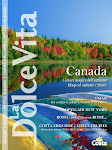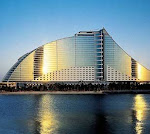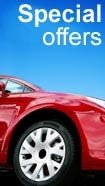Summary
There is a general threat from terrorism. Attacks could be indiscriminate, including in places frequented by expatriates and foreign travellers. Belgium shares a common level of threat with neighbouring European countries. On 11 December 2008 a number of terrorist suspects were arrested in Belgium.
We strongly recommend that you obtain comprehensive travel and medical insurance before travelling. You should check any exclusions, and that your policy covers you for all the activities you want to undertake.
Road Safety
If you wish to drive in Belgium you must have a valid driving licence, insurance and vehicle documents. If you are driving a vehicle that does not belong to you then written permission from the registered owner may also be requested.
Belgian roads are generally in good condition and at night are well lit, including the motorway network. Traffic is fast and Belgium’s accident rate is high mainly due to speeding. In 2007 there were 1,103 road deaths in Belgium (source: DfT).
Speed traps, cameras and unmarked vehicles are operational throughout the country. Since February 2007 the following road regulations were brought into place:
If it is raining, hailing or snowing, vehicles of 7.5 tonnes or over are not allowed to overtake on motorways, highways or roads with a minimum of four lanes.
Vehicles of 3.5 tonnes or over are not allowed to use the left lane on roads with more than three lanes. An exception is made when traffic approaches a fork in the motorway and vehicles have to move to the left or right hand lanes depending on their destination.
The maximum speed for vehicles of 3.5 tonnes or over is now 90km/hr on motorways and highways of 2 x 2 lanes or more.
If your vehicle breaks down and you are on the hard shoulder of the motorway, you must now wear a fluorescent jacket.
You should take great care to obey the ‘priority to the right’ rule, which was tightened up on March 2007. Drivers must give absolute priority to vehicles joining a road from the right, even if they have stopped at a road junction or stopped for pedestrians or cyclists. Exemptions to this rule include motorways, roundabouts, roads sign-posted with an orange diamond within a white background, and drivers who are attempting to join a road after having driven down a street in the wrong direction.
Trams have priority over other traffic. If a tram or bus stops in the middle of the road to allow passengers on or off, you must stop.
There is a speed restriction of 30 kms/hr in school areas, which is valid 24 hours (even when schools are closed). The start and finish of these zones are not always clearly marked.
Fines have increased dramatically (eg up to € 2,750 for exceeding the speed limit by 40 kms/hr). If you are unable to pay an on the spot fine your vehicles may be impounded. More detailed information is available on: http://ukinbelgium.fco.gov.uk.
Do not drink and drive, frequent alcohol checks are made, in daytime as well as at night. A maximum of 0.22 mg/l (0.5 promille) is allowed. A blood sample will be taken if you refuse to be breathalysed. Fines are heavy depending on the degree of intoxication and range from € 1,100 to € 11,000. In certain cases driving licences have been confiscated immediately.
Using a mobile 'phone while driving is not allowed and will incur a heavy fine. The use of "hands free" equipment is allowed.
Local laws and customs
You should carry your valid passport at all times, as Belgian law requires everyone to carry some form of identification.
Possession of drugs and trafficking in drugs are serious offences.
Visas
Holders of British passports, describing them as "British Citizens", do not require visas to enter Belgium. If you intend to work or remain in Belgium for more than three months you must apply to the local communal authorities for a residence permit.
Passport validity
Your passport should be valid for the duration of your stay.
Travelling with children
Single parents or other adults travelling alone with children should be aware that some countries require documentary evidence of parental responsibility before allowing lone parents to enter the country or, in some cases, before permitting the children to leave the country.
Insurance
We strongly recommend that you obtain comprehensive travel and medical insurance before travelling. You should check any exclusions, and that your policy covers you for all the activities you want to undertake.
Emergency numbers
Emergency numbers are 101 (for the police), 100 (for medical services), and 112 (from a mobile phone).
Money
Since 15 June 2007 new legislation on the controls of cash entering or leaving the EU apply in all Member States. Any person entering or leaving the EU will have to declare the cash that they are carrying if this amounts to 10,000 euros or more; this includes cheques, travellers' cheques, money orders, etc. This will not apply to anyone travelling via the EU to a non-EU country, as long as the original journey started outside of the EU nor to those travelling within the EU.














No comments:
Post a Comment